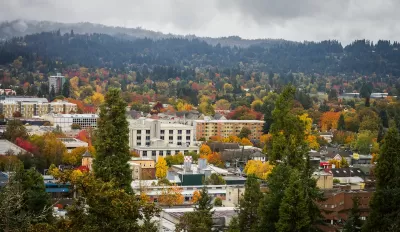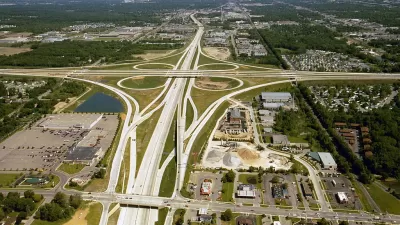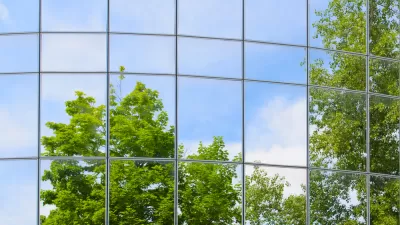The city is considering new decarbonization strategies, including carbon impact fees and educational programs, after the failure of a natural gas ban due to a federal court ruling.

Following the federal court's decision to overturn Berkeley's natural gas ban, Eugene's City Council is seeking new strategies to reduce carbon emissions. The initial attempt to ban natural gas hookups in new residential buildings faced opposition from Northwest Natural and was ultimately withdrawn. As reported by Nathan Wilk, city staff have now proposed alternative decarbonization measures, such as implementing carbon impact fees, launching educational programs, and expediting permits for electrified buildings, which other cities have successfully adopted.
Councilor Lyndsie Leech expressed enthusiasm about exploring these new approaches, emphasizing the need to understand funding requirements and regulatory actions necessary for implementation. The City Council plans to reconvene later this year to discuss potential revenue sources and the specifics of the proposed strategies. Additionally, Councilor Mike Clark suggested negotiating a franchise agreement with Northwest Natural to secure funding for building weatherization, a process that previously stalled due to decarbonization discussions.
City Manager Sarah Medary noted that Eugene might have greater regulatory authority than initially assumed, following a clarification by the 9th Circuit in January. This new understanding could influence the city’s approach to regulating natural gas distribution and further its decarbonization efforts.
FULL STORY: Eugene seeks new decarbonization strategies after failure of natural gas ban

Study: Maui’s Plan to Convert Vacation Rentals to Long-Term Housing Could Cause Nearly $1 Billion Economic Loss
The plan would reduce visitor accommodation by 25,% resulting in 1,900 jobs lost.

North Texas Transit Leaders Tout Benefits of TOD for Growing Region
At a summit focused on transit-oriented development, policymakers discussed how North Texas’ expanded light rail system can serve as a tool for economic growth.

Alabama: Trump Terminates Settlements for Black Communities Harmed By Raw Sewage
Trump deemed the landmark civil rights agreement “illegal DEI and environmental justice policy.”

How Community Science Connects People, Parks, and Biodiversity
Community science engages people of all backgrounds in documenting local biodiversity, strengthening connections to nature, and contributing to global efforts like the City Nature Challenge to build a more inclusive and resilient future.

Alabama: Trump Terminates Settlements for Black Communities Harmed By Raw Sewage
Trump deemed the landmark civil rights agreement “illegal DEI and environmental justice policy.”

Dear Tesla Driver: “It’s not You, It’s Him.”
Amidst a booming bumper sticker industry, one writer offers solace to those asking, “Does this car make me look fascist?”
Urban Design for Planners 1: Software Tools
This six-course series explores essential urban design concepts using open source software and equips planners with the tools they need to participate fully in the urban design process.
Planning for Universal Design
Learn the tools for implementing Universal Design in planning regulations.
City of Santa Clarita
Ascent Environmental
Institute for Housing and Urban Development Studies (IHS)
City of Grandview
Harvard GSD Executive Education
Toledo-Lucas County Plan Commissions
Salt Lake City
NYU Wagner Graduate School of Public Service





























